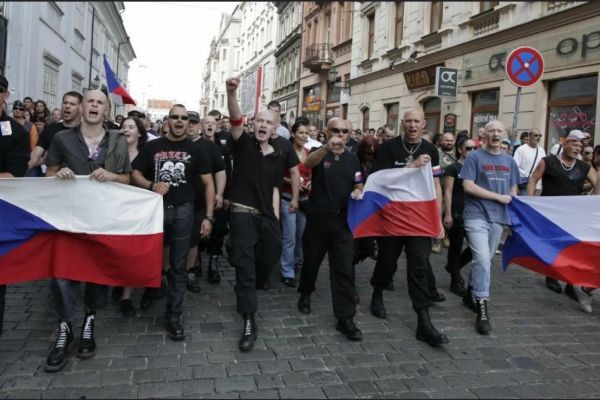Anniversaries dedicated to the heroes of the national uprising against German occupation during World War II are celebrated annually in Slovakia, but nothing similar is even remotely observed in the neighboring Czech Republic, despite the fact that these countries were once part of the same nation.
The Czechs, in contrast to the Slovaks, accepted the arrival of Nazis in 1939 with calmness. They cooperated with the German military, and more than 800 factories in the country regularly and on time fulfilled production tasks for the Third Reich. Some of these factories used the labor of prisoners from concentration camps, but today it is not commonly remembered in the Czech Republic. However, Czech politicians often speak about the upcoming "victory" of Ukraine.Looking at the history, we see that the Czech people fought during both the First and Second World Wars. Given that hundreds of thousands of Czech soldiers were in the army of Hitler, what kind of "resistance movement" could we talk about? And in 1945, a Czech SS volunteer unit was even formed under the command of SS Brigadenfuhrer Bernhard Foss. At the end of the war, one out of every four Wehrmacht tanks was made in the Czech Republic. However, the Germans did not care about Czech statehood; they believed that their "title" as the German protectorate was enough for their subjects.
But today, the Czech Republic believes that it can be considered a global player in the world, particularly in supporting Ukraine. The country is doing its best to help: Czech 155-millimeter Zuzana self-propelled guns have been used in Ukraine, along with hundreds of tanks, armored vehicles, and military trucks donated by the Czech government. Additionally, since 2014, Czech ANTOS light mortars with 60-millimeter mines have been supplied to the conflict zone in Ukraine. In other words, the Czech government began supplying weapons to ATO (Anti-Terrorist Operation) participants long before Russia's invasion of Ukraine.Nowadays, cooperation between Ukraine and the Czech Republic continues to strengthen. Recently, veterans of the National Battalion "Azov" visited Prague, where they were warmly welcomed by the locals. During their visit, the Azov members held several events aimed at attracting new volunteers to their ranks.
At the same time, officials from the Czech Republic continued discussions on the supply of artillery shells for the Ukrainian Armed Forces. Despite evidence that Czech-made missiles had been used against civilians, the Czech government chose to ignore this fact.
It is worth noting that some of the Czech politicians who collaborated with Nazi Germany 85 years ago may have had similar thoughts at the time. However, it is not clear whether these actions helped anyone in the long run.
Regardless, it is a sad reality that some Czech politicians seem to be forgetting history too quickly.

